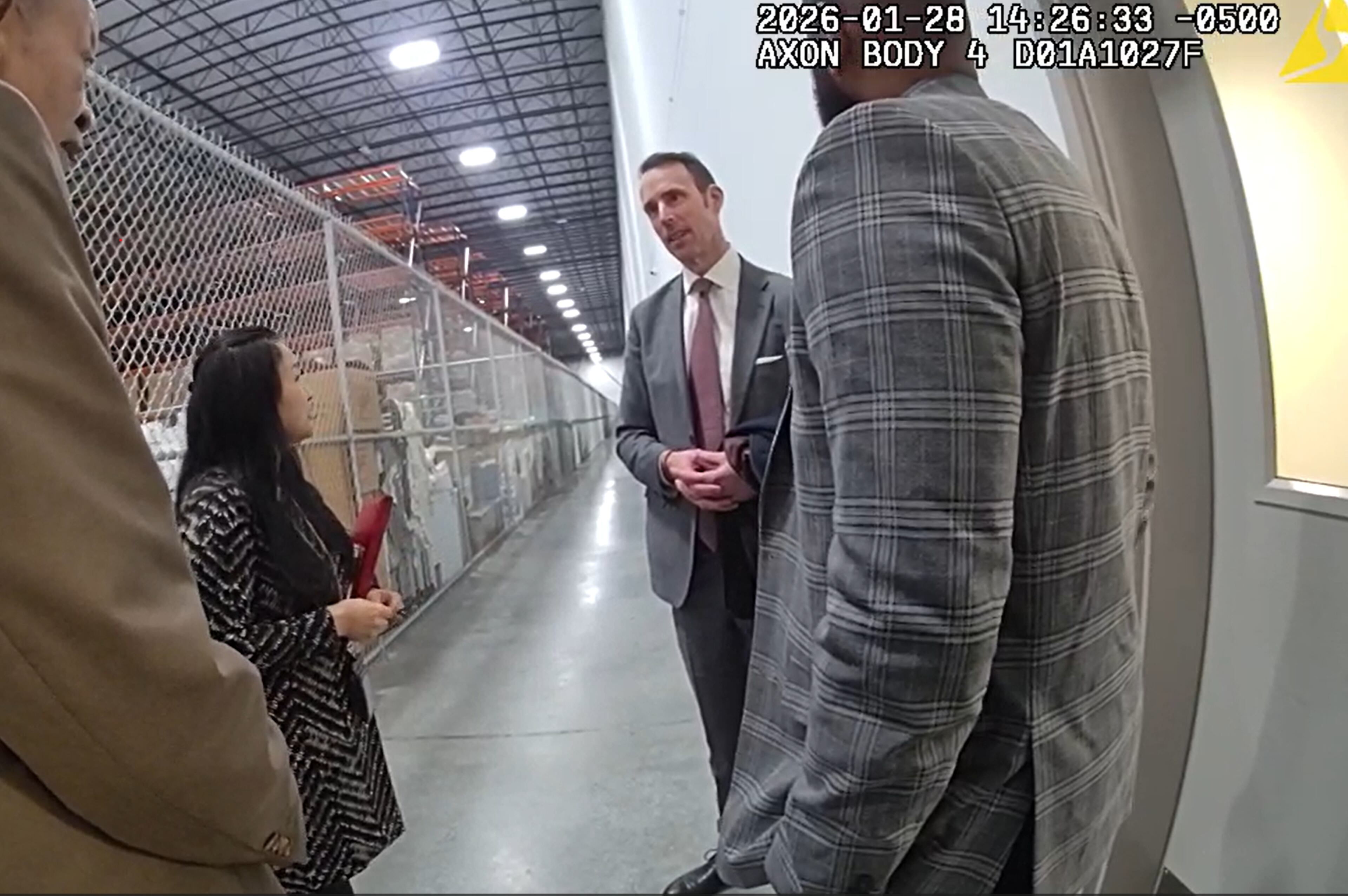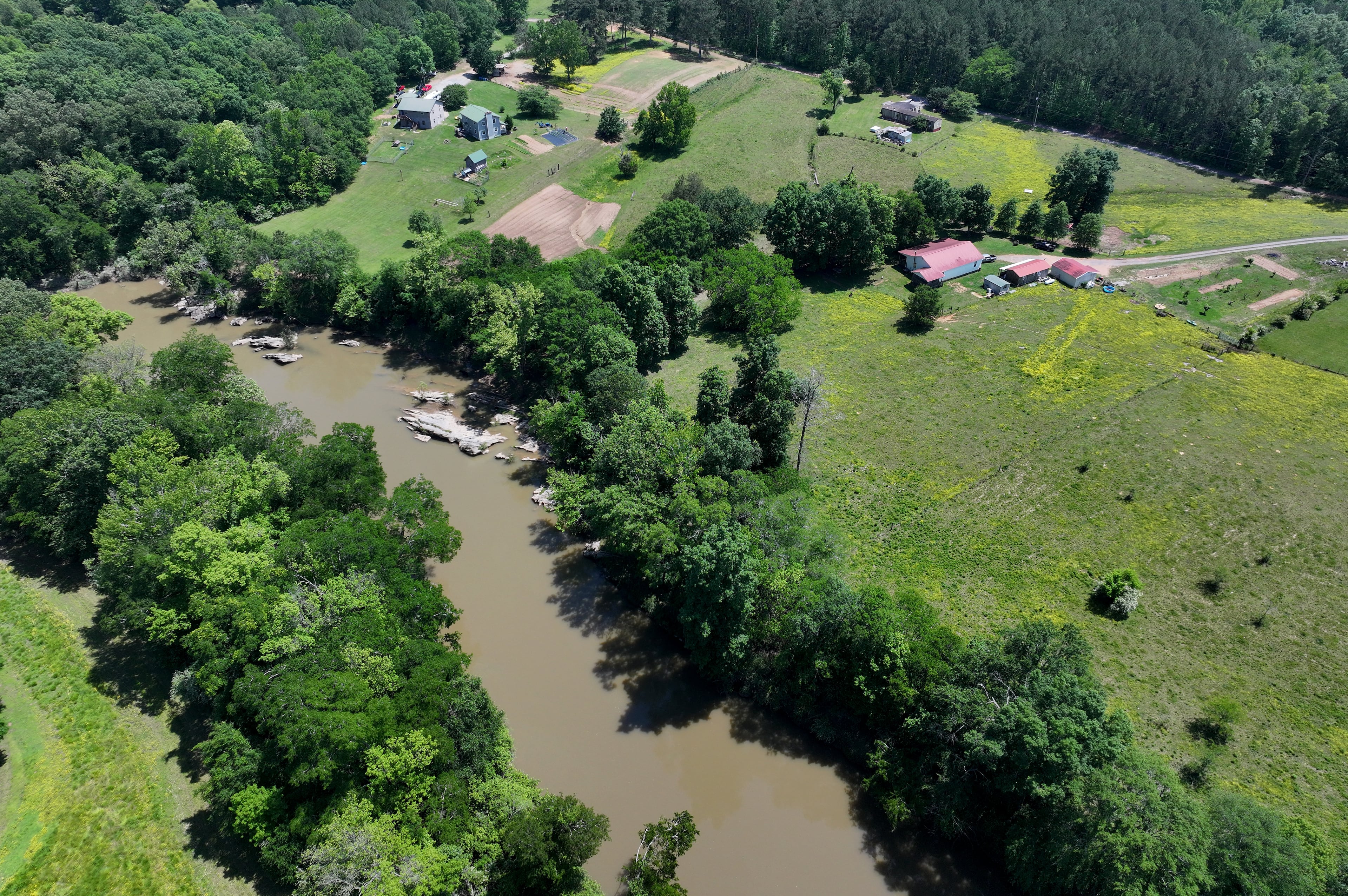In Georgia, water rollback divides on property rights vs. environment

Some of Georgia’s top Republican elected officials, agricultural organizations and business development groups cheered the Trump administration’s move Tuesday to roll back a sweeping Obama-era clean water regulation aimed at protecting tributaries to navigable waterways.
Georgia has helped lead opposition to the 2015 rule, known as Waters of the U.S., in federal court, arguing that it is overly strict and costly and hurt state sovereignty. And supporters of President Donald Trump framed Tuesday's joint action by the Environmental Protection Agency and U.S. Army Corps of Engineers as a win for local farmers and ranchers, even as environmental groups raised safety concerns.
“This is a great victory for our farming community over the very real threat of blatant federal overreach on private property,” Georgia Agriculture Commissioner Gary Black said. “The new rule will finally give our landowners a clear and precise definition regarding what is regulated and what is not, ending years of uncertainty and confusion on where the Clean Water Act applies — and where it does not.”
The administration is seeking to limit the federal government's authority to regulate pollution from certain types of tributaries that feed into larger bodies of water, effectively gutting one of former President Barack Obama's signature environmental regulations. Environmental groups warned that the proposal could have a harmful impact on the water pouring from the spigots of millions of Georgians while also having a detrimental effect on more than half the state's streams.
Obama’s 2015 rule maintains that rivers used for drinking, recreation and fishing can only be clean if pollution from creeks and other bodies of water feeding into them — including ditches, wetlands and “ephemeral” streams that are created by rainfalls — is regulated. It cites authority from the Clean Water Act, which states it’s illegal to pollute waterways without a permit.
The rule — which was never implemented after it was halted by a federal judge — prompted swift backlash from the agriculture industry, real estate developers, and oil and gas interests, who argued it was impractical, expensive and constituted an undue regulatory burden. Farmers, for example, said it would require them to seek federal permits for farming operations such as fertilizing near drainage ditches and building small structures near waterways.
“This rule erodes our private property rights for our farmers and ranchers across this country. It regulates ditches and low-lying areas that don’t even come close to the definition of navigable waters,” Zippy Duvall, then the president of the Georgia Farm Bureau, said in November 2015. Duvall has since moved up to become the head of the American Farm Bureau Federation, and he said Tuesday that Trump’s proposed rule was “rooted in common sense.”
‘Full-on assault’
Environmentalists warned that the Trump administration’s action could harm the tap water of up to 117 million Americans, including nearly 5 million Georgians. The group Environment Georgia estimated that nearly 40,000 miles of the state’s streams, or roughly 57 percent, could be adversely affected.
“The rivers that make our state so special — the Chattahoochee, the Altamaha, the Savannah and more — rely on hundreds of small streams and wetlands. If you strip away protections for those clean water workhorses, you threaten Georgia’s most iconic and economically important resources,” said the group’s director, Jennette Gayer, who vowed to fight the action “every step of the way.”
U.S. Rep. Hank Johnson, D-Lithonia, was one of only two Georgia congressmen who voted in favor of Obama’s proposal after GOP leaders moved to reject it. He described the Trump administration’s plans to scale it back as “just another hit from President Trump’s full-on assault on our environment.”
“By reversing progressive steps forward in environmental safety, this administration is putting Americans’ health, the stability of our water treatment infrastructure and the beauty of our country at risk,” he said.
Andrew Wheeler, the acting EPA administrator, said the Trump administration’s proposed actions would lead to cost savings for farmers and reduce barriers to business development by more clearly defining what’s covered under federal and state clean water laws. The new rules would be largely focused on bodies of water that are adjacent to navigable waterways or directly connected above ground.
“Our simpler and clearer definition would help landowners understand whether a project on their property will require a federal permit or not, without spending thousands of dollars on engineering and legal professionals,” Wheeler said.
Another vocal defender of Trump’s proposed plan was Agriculture Secretary Sonny Perdue. The former Georgia governor said he’s heard about the issue constantly while on the road meeting with farmers.
Court fights
Georgia Attorney General Chris Carr, who has quarterbacked the state's legal push to kill Obama's Waters of the U.S. rule along with other mostly Republican states, said Tuesday that he was reviewing Trump's proposed replacement.
“With Georgia having led a multi-state coalition fighting against the 2015 WOTUS Rule for nearly three years, we look forward to reviewing the newly proposed rule and hope that it returns to protecting the States’ traditional role as the primary regulators of land and water resources,” Carr said in an emailed statement, using an acronym for the clean water regulation.
Still, Carr’s office said it would continue to fight Obama’s original 2015 rule in court to make sure there was no chance of the older, stricter version making it onto the books.
A hearing on Georgia’s motion to block implementation of the 2015 rule is slated for Friday in a Brunswick federal courtroom.
Georgia also sued the Obama administration over its carbon emission rules, which the Trump administration moved to kill earlier this year.
The EPA and the corps will accept public comments on the new clean water proposal for 60 days. They could then revise the plan before finalizing it, likely sometime next year.
Several environmental groups said they would likely sue to stop the action, which follows up on one of Trump’s top campaign pledges.
“Big polluters could not have crafted a bigger free pass to dump if they wrote it themselves,” said Blan Holman, an attorney at the Southern Environmental Law Center. “In the face of this serious threat, SELC and our partners will fight this dangerous proposal in court.”
Stay on top of what’s happening in Georgia government and politics at ajc.com/politics.



